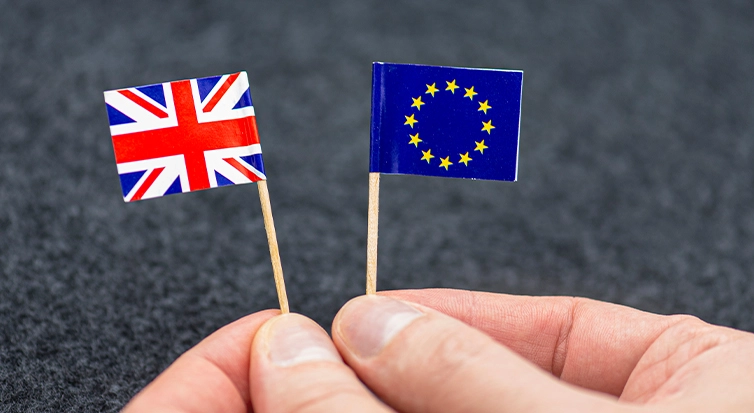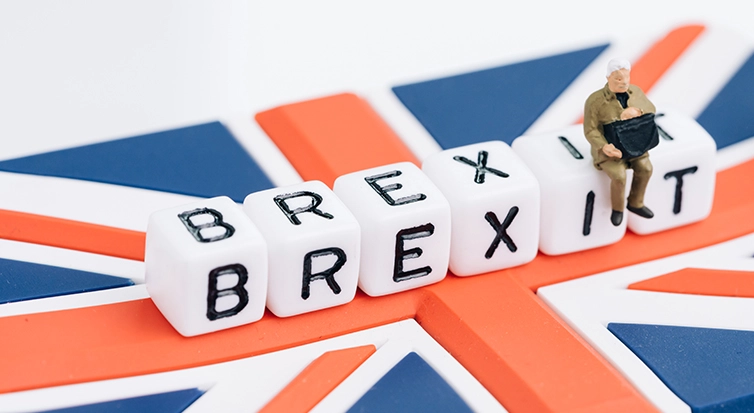Brexit has been the talk of the town since March 2016, and the transition period before all of the changes finally come into force is over.
On 31st December 2020, the UK officially parted ways with Europe. After years of complicated, sometimes bitter, negotiation, both the parties agreed to the terms of a new trade deal.
For businesses, specifically, Brexit will mean significantly different accounting procedures and a whole lot of paperwork. That means the demand for having a specialised accountant to help with things will be an all-time high.
If your accounting firm has already started receiving consulting requests or wants to be able to consult businesses-in-need on Brexit, here are some VAT tips that every accountant should always keep in mind:
1. Opt for VAT postponed accounting
A VAT-registered business based in the UK can request postponed VAT accounting for goods imported from the EU and the rest of the world. Under this accounting system, VAT is recorded as a reverse charge entry on the next VAT return rather than being paid when the goods arrive. This makes things much simpler for the cash flow.
2. Use a freight forwarder
All goods imported into the UK will be subject to VAT, customs declaration and customs duty. Procedures for these customs declarations can be complicated, making sense to work with a freight forwarding company or an experienced customs agent rather than trying to finish it in-house.
3. No need to complete ESLs or Intrastat despatch returns
For the non-controlled import of goods, customs declarations can be deferred by up to six months until 1st July 2021. For this reason, HMRC requires businesses that come under Intrastat rules to complete their Intrastat arrivals.
However, EC sales lists and Intrastat despatch returns will no longer be required for UK businesses, except in Northern Ireland where companies will still need to complete Intrastat despatch returns and EC Sales Lists for goods (but not services).
4. Check if the business can claim extra input tax
Since the legislation came into force from 1st January 2021, it means that input tax can be recovered concerning the sales of specific insurance and financial services sold to EU customers, so check whether this applies to client businesses.
5. Exports will now be zero-rated
Now that Brexit has come into full force, all goods exported from the UK to other countries will be zero-rated for VAT purposes. The VAT and duty on those goods will be paid once they reach the destination country. Please ask your business clients to thus retain the proof of export to support this zero-rating.
6. Keep the new regime for low-value imports in mind
Under the new rules, if a business imports goods worth no more than £135 from overseas sellers, they need to account for VAT on their return with reverse charge entries in Boxes 1 and 4. If the business is not VAT-registered, they will need a VAT invoice from the overseas supplier, who will need to register for UK VAT from January 2021.
7. Check if non-union VAT MOSS applies to the business
Businesses supplying broadcasting, telecommunication and electronic (BTE) services to B2C customers in the European Union may not at present be registered for Union VAT MOSS (mini one-stop-shop). They will thus be charging UK VAT on sales.
However, from 31st December 2020, the annual VAT moss sales threshold of 10,000 euros no longer applies to UK businesses. In its place, there will be a zero turnover threshold. So any UK business that makes even one BTE sale to a B2C customer in the EU will now need to register for the non-Union VAT MOSS scheme.
8. Check the review rules for B2C services
From 1st January 2021, the list of professional services mentioned under VAT Notice 741A, section 12 are no longer charged UK VAT if supplied B2C to EU customers. At the same time, please check whether your business client needs to register for VAT in the customer’s country under any ‘use and enjoyment’ rules.
9. Have your GB EORI number in place
If your business clients are involved in imports and exports, having a GB EORI number is crucial. The online application takes only ten minutes, and the HMRC will issue them a number within seven days.
10. Consider registering with TSS
The Trader Support Service (TSS) provides free assistance with any procedures and paperwork relevant to any business trading in the UK, including Northern Ireland. If your business client deals in trading of this nature, they must register.
OVER TO YOU
Without a doubt, Brexit has changed how businesses in the UK operate. Since accounting is such a vital function, they need to seek help, whenever necessary and gain more control over their finances post-Brexit.
Hence, if you want support until you sort out your clients’ paperwork about Brexit – do not worry; Stellaripe is here to help for VAT outsourcing services. We can help you with a range of services such as payroll, bookkeeping and year-end tax accounts.
Give us a ring at +44 20 3475 3537 to get your questions answered right now, or visit www.stellaripe.co.uk for more information.



